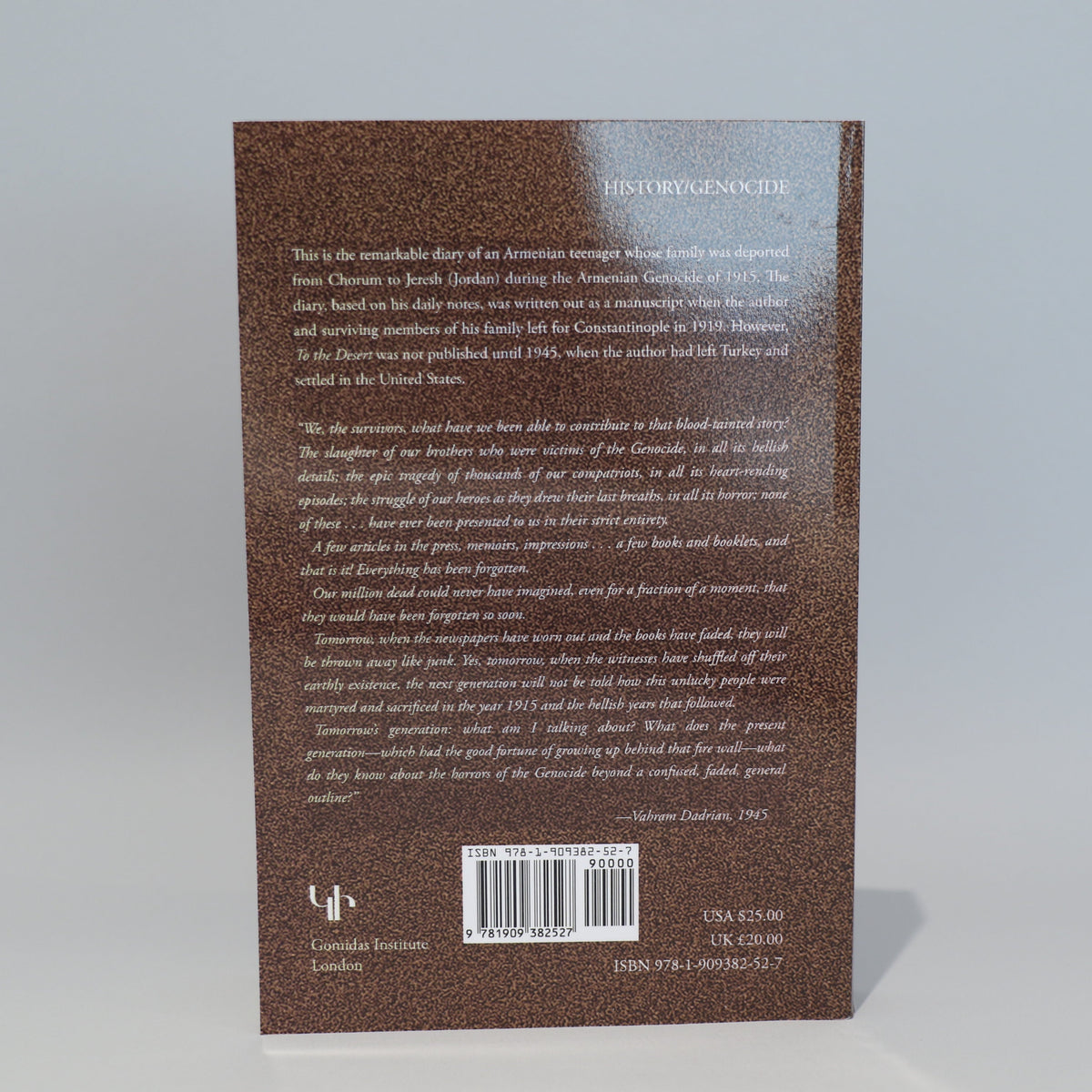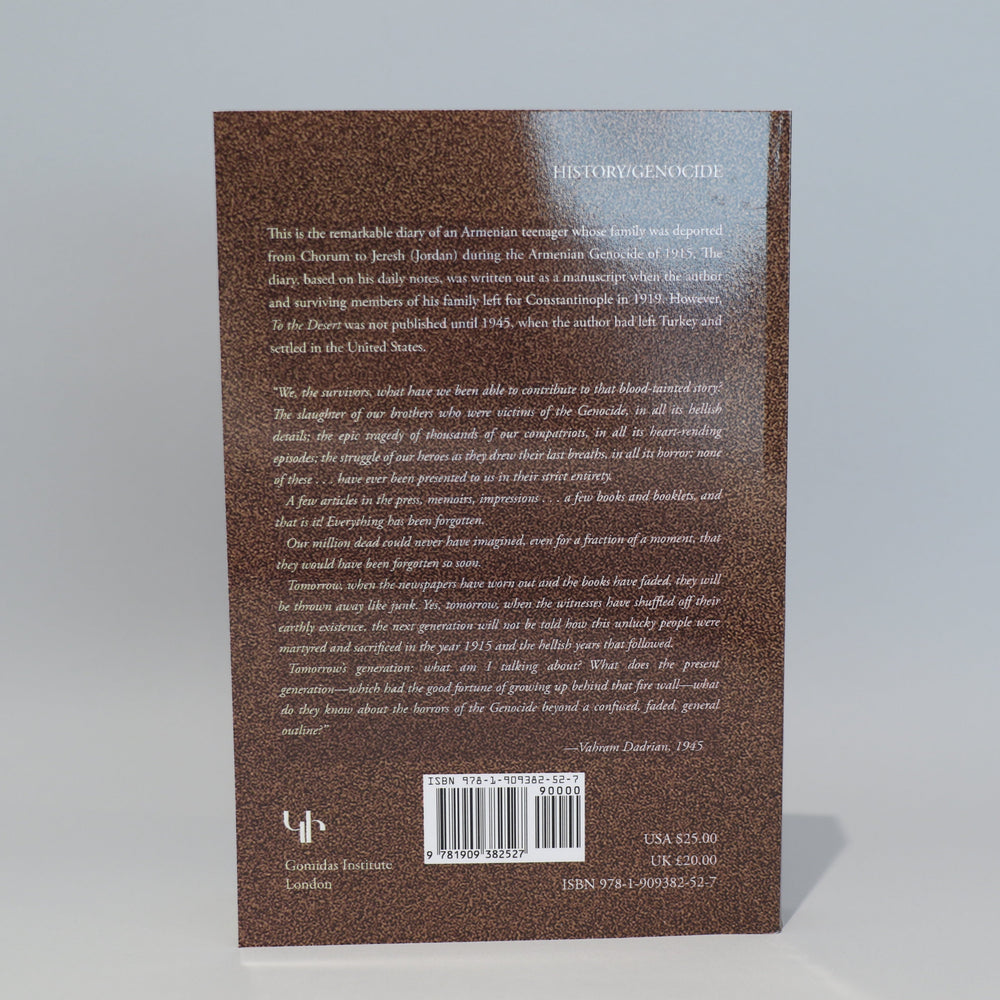By Vahram Dadrian
"Like no other survivor account. . . . An important document, an engaging chronicle and a painful reminder of the human costs of war, mass killing and lost homelands.” —The Los Angeles Times Sunday Book Review (10 January 2004)
Vahram Dadrian (1900–1948) started writing his diaries on 24 May 1915 because of the calamitous events facing Armenians on the horizon. This was the period when Ottoman authorities began the vilification of Armenians, as a precursor to mass deportations and massacres. The Armenians of Chorum, where the Dadrians lived, fared no differently than other communities. They were deported to Aleppo, and then on to Jeresh (Jordan), where they remained until the end of World War I. Surviving members of the family returned to Constantinople (Istanbul) in 1919, where Vahram composed his diary-notes for publication.
Vahram's account, written in Armenian, was first published as a book in 1945. This is the first English translation of that work. It is a somewhat unusual narrative written by a child survivor of the Armenian Genocide. Vahram relates the fate of thousands of Armenians who were not sent to Der Zor in 1915, but to the wastelands south of Aleppo, as far as Maan and Es Salt in Jordan. Vahram relates his family's deportation, survival strategy—and luck—throughout this period. He also notes the condition of other deportees on the way.
Though the Dadrian family did not experience a general massacre like so many other Armenians, they still lost half of their members by 1919.
Vahram's account, written in Armenian, was first published as a book in 1945. This is the first English translation of that work. It is a somewhat unusual narrative written by a child survivor of the Armenian Genocide. Vahram relates the fate of thousands of Armenians who were not sent to Der Zor in 1915, but to the wastelands south of Aleppo, as far as Maan and Es Salt in Jordan. Vahram relates his family's deportation, survival strategy—and luck—throughout this period. He also notes the condition of other deportees on the way.
Though the Dadrian family did not experience a general massacre like so many other Armenians, they still lost half of their members by 1919.
- Gallery
- Description


By Vahram Dadrian
"Like no other survivor account. . . . An important document, an engaging chronicle and a painful reminder of the human costs of war, mass killing and lost homelands.” —The Los Angeles Times Sunday Book Review (10 January 2004)
Vahram Dadrian (1900–1948) started writing his diaries on 24 May 1915 because of the calamitous events facing Armenians on the horizon. This was the period when Ottoman authorities began the vilification of Armenians, as a precursor to mass deportations and massacres. The Armenians of Chorum, where the Dadrians lived, fared no differently than other communities. They were deported to Aleppo, and then on to Jeresh (Jordan), where they remained until the end of World War I. Surviving members of the family returned to Constantinople (Istanbul) in 1919, where Vahram composed his diary-notes for publication.
Vahram's account, written in Armenian, was first published as a book in 1945. This is the first English translation of that work. It is a somewhat unusual narrative written by a child survivor of the Armenian Genocide. Vahram relates the fate of thousands of Armenians who were not sent to Der Zor in 1915, but to the wastelands south of Aleppo, as far as Maan and Es Salt in Jordan. Vahram relates his family's deportation, survival strategy—and luck—throughout this period. He also notes the condition of other deportees on the way.
Though the Dadrian family did not experience a general massacre like so many other Armenians, they still lost half of their members by 1919.
Vahram's account, written in Armenian, was first published as a book in 1945. This is the first English translation of that work. It is a somewhat unusual narrative written by a child survivor of the Armenian Genocide. Vahram relates the fate of thousands of Armenians who were not sent to Der Zor in 1915, but to the wastelands south of Aleppo, as far as Maan and Es Salt in Jordan. Vahram relates his family's deportation, survival strategy—and luck—throughout this period. He also notes the condition of other deportees on the way.
Though the Dadrian family did not experience a general massacre like so many other Armenians, they still lost half of their members by 1919.

